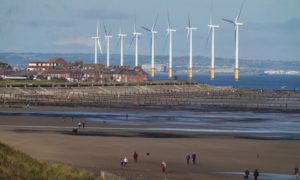by M. Cordiez, 9 Oct 2020 in ConnaissancedesEnergies
…
…
Et si on considérait le problème dans l’autre sens ?
Historiquement, le succès des compagnies pétrolières était jugé à leur capacité à renouveler, voire accroître, leurs réserves par des découvertes. Avec le temps et l’épuisement des ressources aisément accessibles, cet exercice est devenu de plus en plus complexe pour les majors privées (BP, Total, ENI…). L’essentiel des réserves conventionnelles sont aujourd’hui détenues par des compagnies nationales (Saudi Aramco, National Iranian Oil Company, Iraq National Oil Company…). Quant aux pétroles non conventionnels, il s’agit de ressources chères à exploiter, non rentables au cours actuel du baril, et sur lesquelles un positionnement reste de l’ordre du pari. Des sommes colossales ont été perdues par les fonds et entreprises qui ont investi dans le pétrole de roche mère aux États-Unis(6).
Les discours sur l’arrivée opportune d’un pic de la demande ne seraient-ils donc pas également un moyen pour les compagnies pétrolières d’offrir une narration positive face à leur incapacité à renouveler leurs réserves ? La conséquence de cette contrainte est alors présentée comme le fruit d’une stratégie : il n’est plus besoin de renouveler les réserves, vu que la demande va diminuer. Cette approche est en outre favorable en termes de communication car elle renvoie l’image de compagnies responsables vis-à-vis du climat, tout en portant un message optimiste : les émissions de gaz à effet de serre baisseront naturellement sans effort particulier, du fait d’une demande pétrolière qui diminuera d’elle-même.
Hors pandémie de Covid, nous devons garder à l’esprit que la consommation pétrolière – donc la demande – était croissante jusqu’en 2019 inclus. Elle a augmenté de 924 000 barils/jour entre 2018 et 2019, soit une augmentation de 0,9%(7). L’idée d’un pic de la demande est séduisante et rassurante, mais elle reste aujourd’hui une hypothèse prospective. D’ailleurs, plusieurs entreprises pétrolières telles que l’Américaine ConocoPhilips et la Russe Gazprom Neft prévoient une reprise de la croissance de la demande une fois la pandémie maîtrisée(8). Nous ne pouvons pas miser notre avenir sur le pari d’un déclin naturel de la demande de pétrole, qui serait poussé à temps vers la sortie par des solutions plus compétitives et déployables à large échelle.
Face aux incertitudes qui planent sur la pérennité de l’offre(9)(10) et à la nécessité impérieuse de réduire nos émissions de gaz à effet de serre pour atteindre la neutralité carbone, nous devons agir et tout mettre en œuvre pour assurer le déclin de la demande pétrolière. Répondre à cet enjeu nécessite d’aller au-delà de nos seules espérances quant au potentiel des technologies futures. Cela implique de faire évoluer notre rapport à l’énergie et à ses usages.

